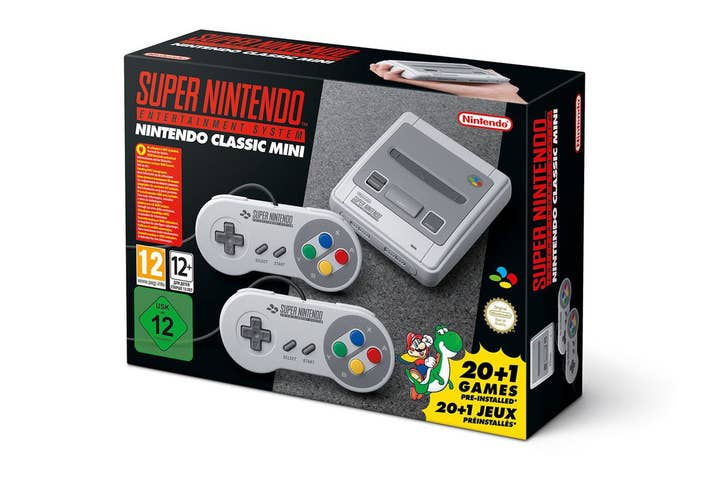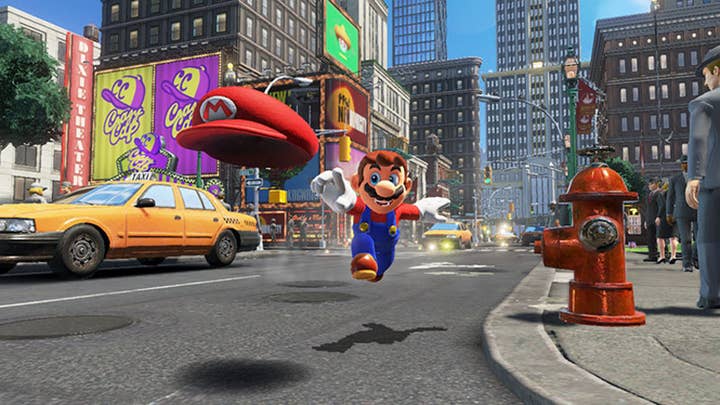The SNES Mini is wonderful and just what the market needs
A £70/$80 games console is an ideal family product, irrespective of 1990s nostalgia
Yesterday I finished Super Mario World again.
I've completed it 1,000 times before, but this time I've done it using an actual SNES controller for the first time in almost 25 years.
My wife has been impatiently waiting for me to finish Bowser so that she can shove me off and continue her journey through The Legend of Zelda: A Link To The Past. She hasn't played that game in decades, but somehow seems to remember exactly where to go without checking the map. Hyrule was imprinted on her young mind in the mid-1990s and remains there to this day.
The SNES Mini is a retro gamer's dream, of course. Full of classic titles, running as intended, with Star Fox 2 the headline act - getting its first official public outing after Nintendo decided against releasing it in 1995 (afraid of poor comparisons with the newly launched PlayStation).

It's a machine targeted squarely at nostalgic adults, which is evident from the design of the hardware to the chosen games. Yet as a product timed nicely to coincide with the Christmas sales window, it has far more significant potential - even more so than last year's NES Mini.
Last year's console remake was a lovely little product, but most of the games have been bettered since. Many of the titles on show haven't aged all too well.
That's not true with the SNES Mini. Super Mario World, Yoshi's Island, Super Metroid and Zelda remain as iconic and playable today as they did over 20 years ago. Even games like Donkey Kong Country and Super Mario RPG - the not-quite classics of the era - remain quality 8/10 games.
That means that if you're a parent that wants to introduce your child to video games, you have a legitimate new product to get them that isn't a $300 Switch or a $500 Xbox One X. What's more, it's a complete package. Two controllers, 21 games for £70/$80. No online subscription fee required. Even the Wii, which had a similar all-in-one appeal, required a second controller for Wii Sports.

Of course, there have been many plug-and-play consoles in the past, particularly featuring Sega titles, but these largely come from third-party accessory firms or toy manufacturers. Rarely do we get a product like this curated and backed by a games company as large as Nintendo.
Now, at last, partners and parents have something to buy their 30-something loved one that isn't a new pair of socks or a voucher. And the mums and dads amongst them will, undoubtedly, be placing that second controller into the hands of their young ones so that they can experience the joys of Super Mario Kart for the first time.
As a result, this is potentially an important product for Nintendo. Nintendo machines have historically been the 'my first games console', with some players moving onto other products as they get older (and those that hang around becoming advocates to the next generation). Yet Nintendo found itself sidelined during the first part of this current console cycle due to the failed Wii U, and iPhone is now the 'my first games console' for so many kids. Speaking anecdotally, even the older fans now find themselves playing on smartphones as opposed to the console under the TV.
"It's products like the SNES Mini that could get lapsed fans back to TV console gaming and bring in new ones, too"
Nintendo's move onto smartphones will help address a lot of that, but it's products like the SNES Mini that could get lapsed fans back to TV console gaming and bring in new players, too. And that's good for the entire console market, which is struggling to attract younger and more casual audiences.
So let's say it succeeds. Let's say Nintendo gets the stock levels right this time and there are millions of lost console players - and their kids - playing with SNES controllers come December 25th. Where do we go from here?
It's not an easy answer. There are only so many SNES Minis you can do, particularly with consoles that have games as timeless as these.

One solution to keeping kids and families engaged with TV gaming is to take a leaf out of our sister entertainment industries' playbook, and work together.
There's a large number of kids and family games on the market right now, with more to come over the next few weeks. Knack II, the Switch itself, Mario Odyssey, PlayLink, Disneyland Adventures, Minecraft, Arms, Crash Bandicoot, Rabbids, LEGO Ninjago, Mario Kart, Super Lucky's Tale... there's quite an impressive array of broader content that proves there's more to console gaming than 4K, VR, and massive online shooters.
It's not unusual for rival movie studios and record labels to unite on a cross-industry promotion that targets a specific audience, so wouldn't it be great to do something similar in games? A piece of orchestrated marketing activity where retailers push a selection of titles aimed specifically at kids and family audiences - and not just via Amazon, GAME and GameStop, but across Xbox Live, PSN and eShop, too. All supported by PR and maybe even a bit of above-the-line advertising.
It may require trade body support, but it could be just what the console industry needs - a strong reminder that's there is more to gaming on the TV than just shooting people in the face.
